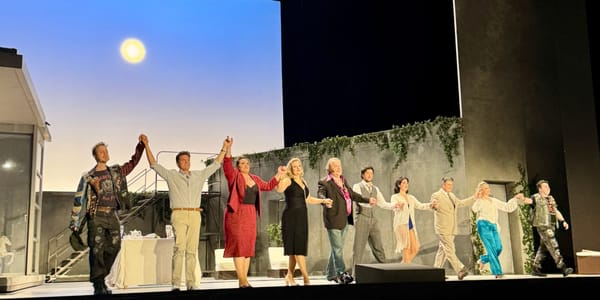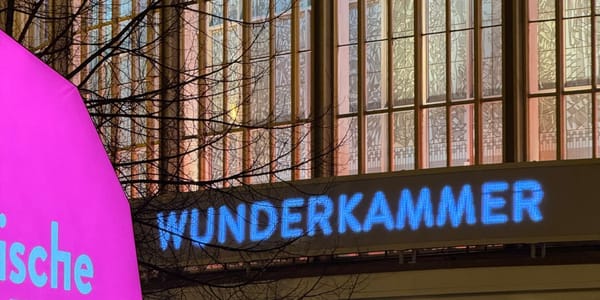World Premiere of Lash – Acts of Love at Deutsche Oper Berlin
A surreal meditation on loss and memory, Lash lingers in the echo of a vanished presence—fractured voices, flickering images, and the intimate textures of a body learning to live again.
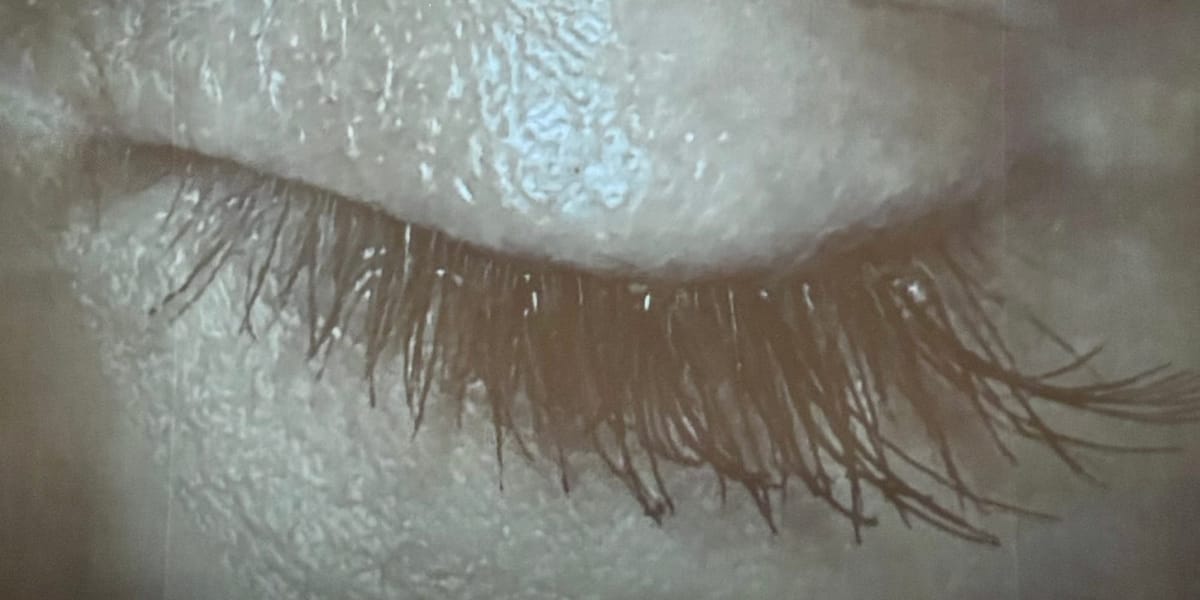
🎭 Lash – Acts of Love | World Premiere
🎶 Rebecca Saunders, 2025
💭 Dead Centre, 2025
🏛️ Deutsche Oper Berlin
🗓️ 20.06.2025
"I WANT TO FIND OUT IF YOU CAN REMEMBER YOUR FIRST VIVID EXPERIENCE OF DEATH"
Lash – Acts of Love opens in arresting silence: A close-up of lips—twitching, moist, forming half-words and nonverbal sounds—fills a vast mesh screen that spans the entire stage. The rest is black, until a mirrored cube slowly rises from the ground. Inside: a woman in bed; she is the source of the twitching mouth, and the origin point of a sprawling, internal narrative. With this image, we’re plunged into a disorienting world of intimacy, memory, and grief.
The world premiere opera by British-German composer Rebecca Saunders in a production by theatre collective Dead Centre, unfolds in three acts—Love, Mute, Loss—tracing the inner journey of a woman grappling with death. But it’s not a traditional arc. There’s no clear beginning, climax, or resolution. Instead, Lash lingers in a suspended moment of devastation, when time no longer works the way it’s supposed to. The central question isn’t what happened, or even who died, but how it feels to live after someone else stops. What we witness is less plot than psychological texture, grounded in one microscopic clue: a single eyelash found on the protagonist’s pillow, belonging to the person she has lost. From there, an entire emotional universe unfurls.
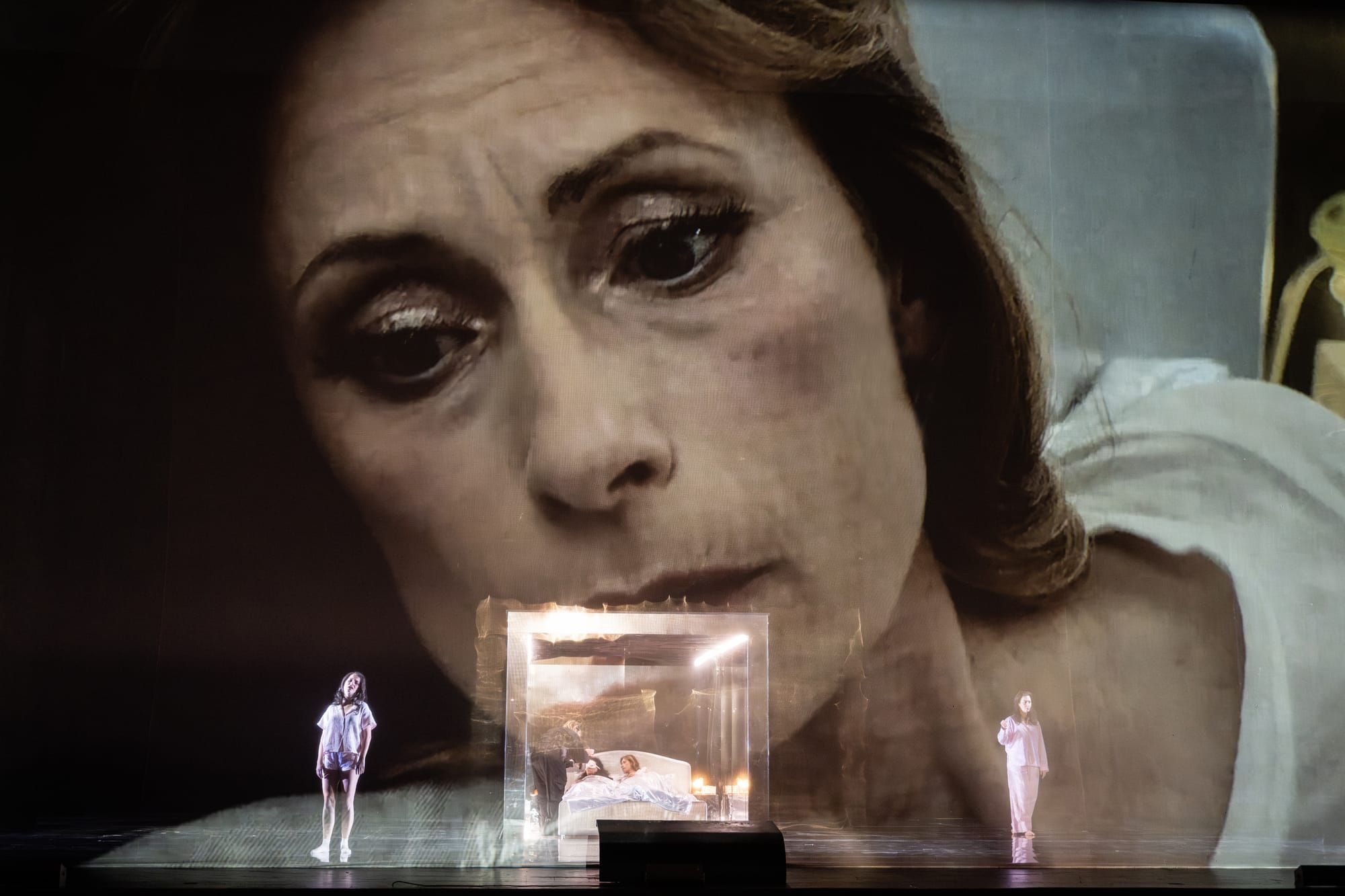
Who Is She, and How Many of Her Are There?
The protagonist isn’t played by one performer, but by four women—each embodying a facet of the grieving woman’s psyche. They are fragments, shadows, echoes, sometimes lovers. At times they seem to be comforting or confronting themselves; at other times, they appear to re-enact past relationships, possibly even with the person now lost. Their identities blur and shift, occasionally taking on a sapphic charge. We’re never told who the deceased is, but clues emerge—subtle reverberations of intimacy, a shared bed, a single eyelash left behind.
This split casting allows the opera to stage the grieving process as an internal debate, a dissociative fugue of sorts. Grief isn’t linear or tidy—it contradicts itself, loops back, fragments and reassembles. Saunders and Dead Centre use this fragmentation as both a narrative strategy and an emotional one. By the final act, the voices of the four women align into a single vocal line. Unity, maybe—but not closure. Their last line together? “Come to bed and fucking die.” So much for healing.
Inside the Body, Inside the Mind
The stage design echoes this psychological splintering. Modular cubes rise and glide across the space—bedroom, restaurant, waiting room, bathtub—each containing a memory, a mood, a trigger. These boxes are in constant motion, like thoughts shifting in and out of focus. And always, bodies: projected in enormous detail onto screens and walls, sometimes raw and surgical (an eye is removed live on stage), sometimes soft and abstracted (lashes, skin, mouths, hair). The videography, by a live camerawoman who becomes a fifth presence onstage, lends the piece an unsettling, near-cinematic intimacy. It’s part opera, part video installation—something you might easily expect to see at the Venice Biennale instead of at Bismarckstraße.
Even the orchestra is physicalized. Scattered across balconies throughout the auditorium, it envelops the audience from all sides, like internal organs surrounding the woman on stage. Sound doesn’t just come from a pit—it comes from everywhere. The auditorium becomes a body, and we, like the protagonist and her grief, are trapped within it.
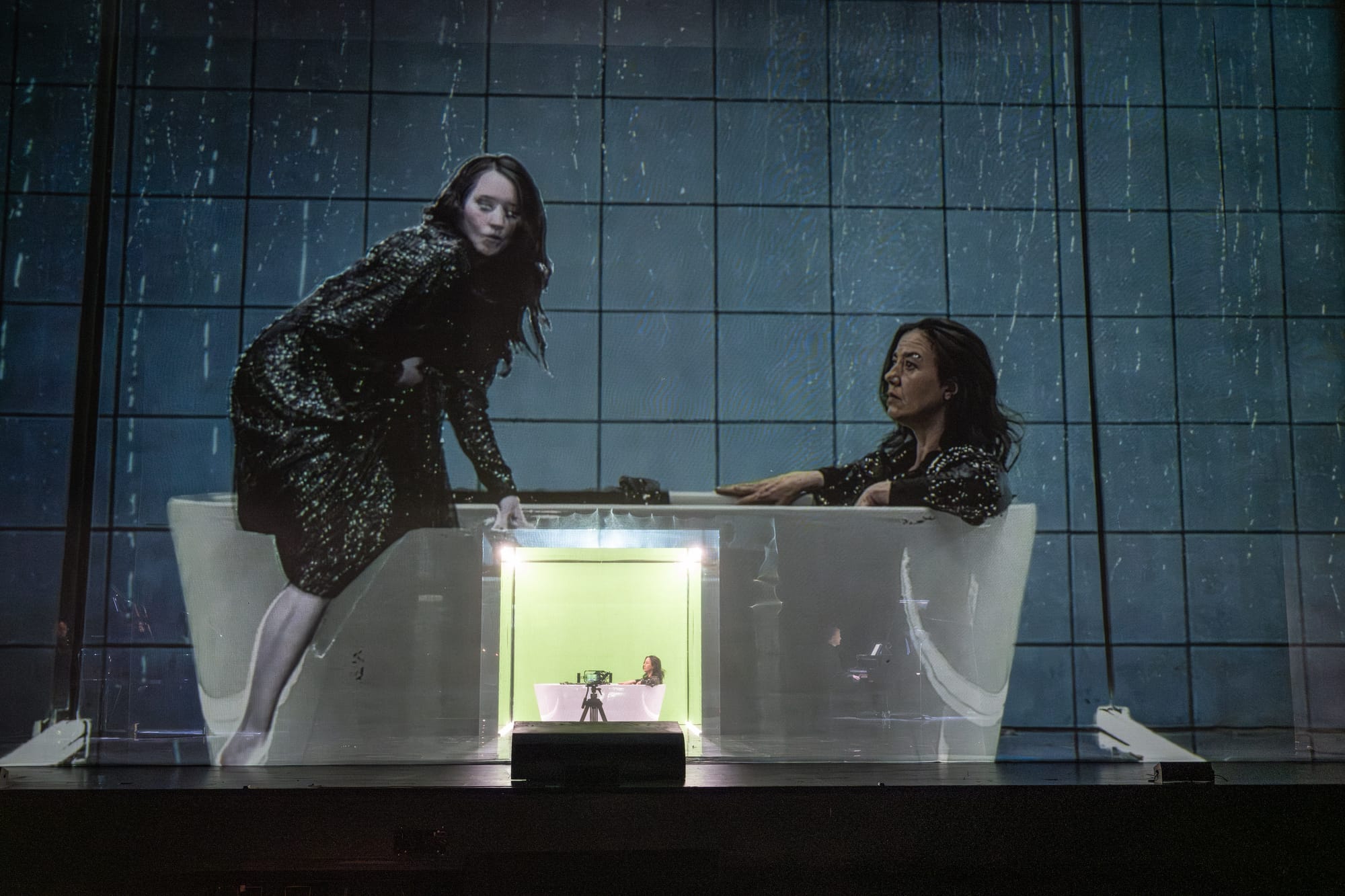
A Soundtrack for Grief, Guts, and Glitches
The sound world of Lash is equally fragmented, yet intentional. Each soloist is given a bespoke palette tailored to her vocal timbre, breathing pattern, and even bodily presence. Traditional operatic singing is frequently interrupted by spoken text, whispered monologues, glottal stops, pre-verbal sighs. At times, enunciation becomes hyper-stylized—speech transformed into percussive gesture. This is an opera that speaks as much as it sings, often blurring the line between the two.
Instrumentally, Saunders draws from a palette that extends far beyond classical norms. Electric guitar, synthesizer, drums—all elements more at home in electronic or ambient music—blend with strings and winds to create a sonic world that is volatile, unpredictable, and at times deliberately disorienting. There are rare moments of melodic clarity that pierce long stretches of soliloquy like memory fragments. But mostly, the music resists conventional form. It pulses with tension, but never resolves. Just like grief.
Post-Dramatic, Post-Operatic, Post-Genre?
If this sounds hard to categorize, that’s probably the point. The program notes cite post-dramatic theatre as an influence, and it tracks: Lash isn’t interested in narrative clarity. It offers a dreamlike, atemporal meditation—part mourning ritual, part sensual fever dream. We’re invited into a single, dense emotional moment stretched into near-infinity. The goal isn’t to move forward but to explore—every angle, every wound, every breath.
At times, Lash feels closer to spoken-word theatre than to opera. Some scenes would seem more at home on a stage in London’s West End than at a state-funded German opera house. But maybe that’s precisely the radical gesture: refusing categorization. Refusing to behave. As Beyoncé notably posed on Cowboy Carter: “Genres are a funny little concept, aren’t they?” Lash seems to ask the same question.
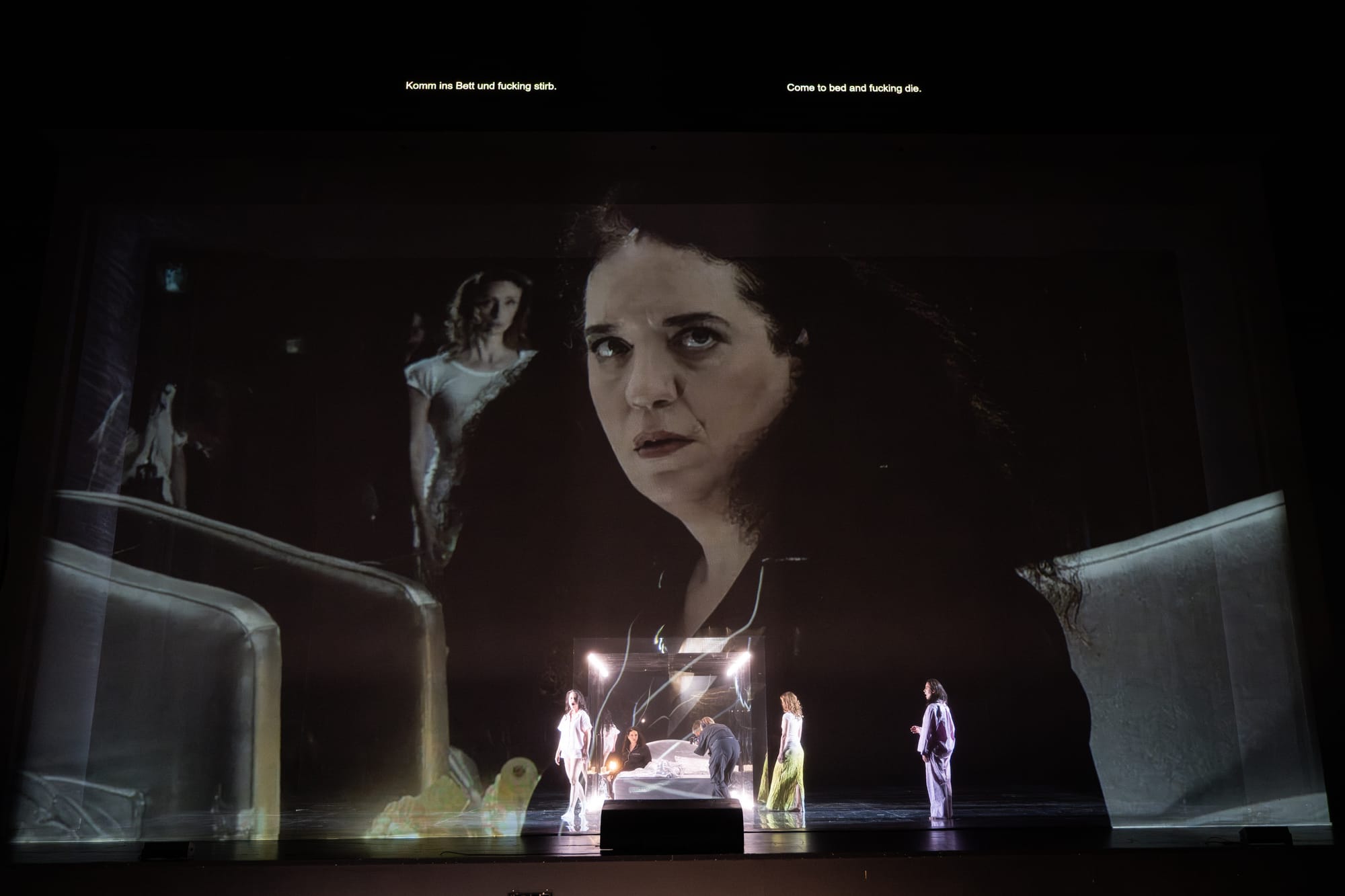
All the Right Boxes, None of the Right Vibes
And yet—despite all this conceptual richness, Lash left me curiously unmoved. On paper, it checks every box for contemporary opera: challenging score, radical staging, female-led cast, philosophical themes, genre-defying ambition. But emotionally, it never quite landed. The eye surgery? Visually striking, yes. But also eerily reminiscent of images that populate our war-saturated social feeds. Instead of discomfort, I felt fatigue. I found myself admiring the piece more than feeling it.
Sensuality was another stated theme, yet little of the work felt truly sensual to me. Suggestive, yes, at moments. Tender, occasionally. But not sensual in a way that felt emotionally immersive. And that’s what surprised me most. With its intimacy, vulnerability, and high-concept execution, Lash seemed tailor-made to provoke feeling. But instead, I found myself at a distance—impressed, but untouched. Perhaps that emotional opqueness is deliberate. Or perhaps it’s a sign that the work, for all its daring, failed to find resonance.
To Be Continued?
So is Lash an opera? By most traditional definitions—yes. Classically trained singers, large orchestra, music driving the action. But it also complicates the genre, testing how far the term can stretch before it dissolves. Maybe it’s a new genre altogether: one that lives between sound installation, feminist performance art, and chamber opera. Will it enter the canon? Hard to say. Unlike Tosca, which I saw at the same house just one night earlier, I struggle to imagine it being performed continuously over the next 125 years. But perhaps it wasn’t made to last. Lash is about fragility, impermanence, the body in pain and flux. It exists in its own shimmering, fragmented present, a study in grief, transformation, and the stubborn ephemerality of being alive. Like a lash on a pillow, it’s a fleeting trace of someone once there.
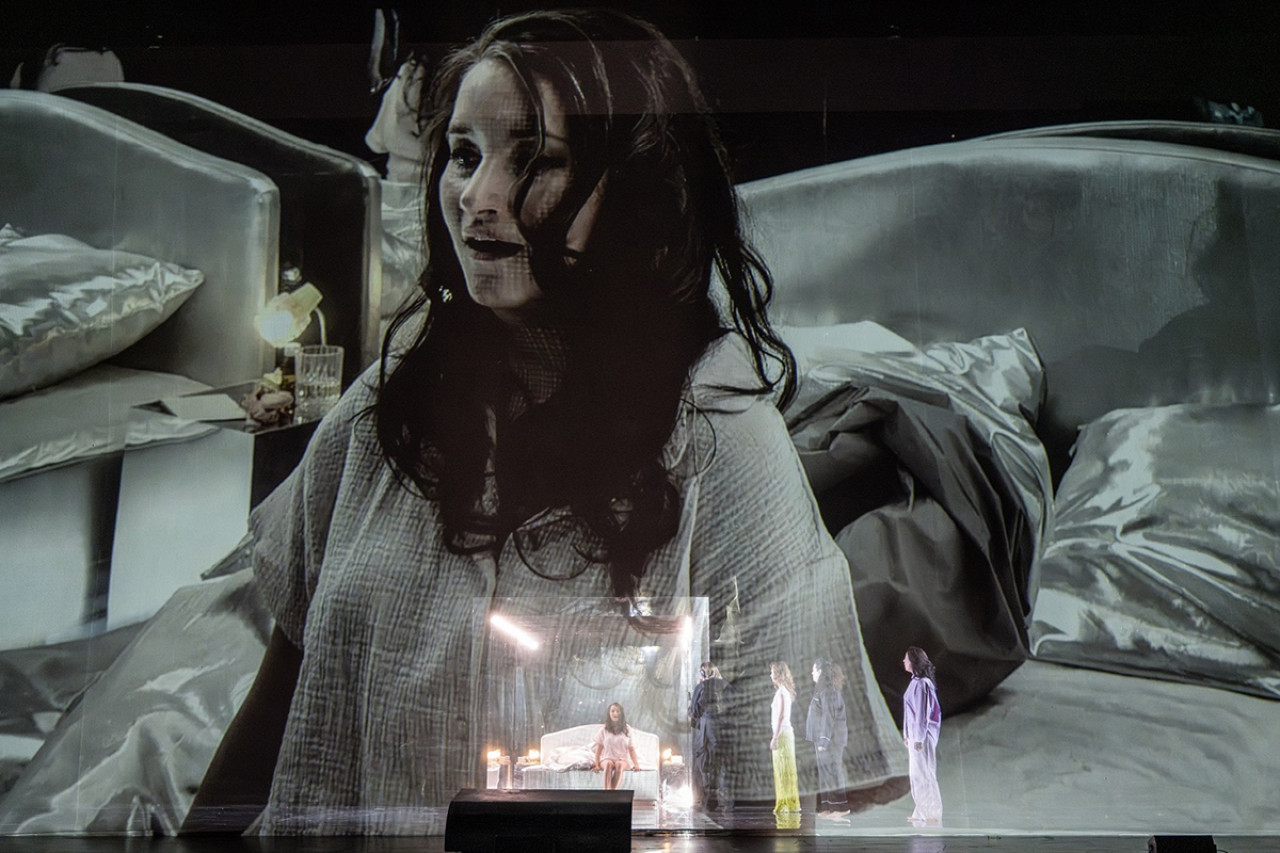
Cast - 20.06.2025
Composer Rebecca Saunders
Conductor Enno Poppe
Director Dead Centre
Set design, Costume design Nina Wetzel
Light design Jörg Schuchardt
Video Sébastien Dupouey
Sound engineering Arne Vierck
Dramaturgy Sebastian Hanusa
A Anna Prohaska
N Noa Frenkel
S Sarah Maria Sun
K Katja Kolm
Synthesizer Christoph Grund
Synthesizer Ernst Surberg
E-Guitar Adrian Pereyra
Orchestra Orchester der Deutschen Oper Berlin
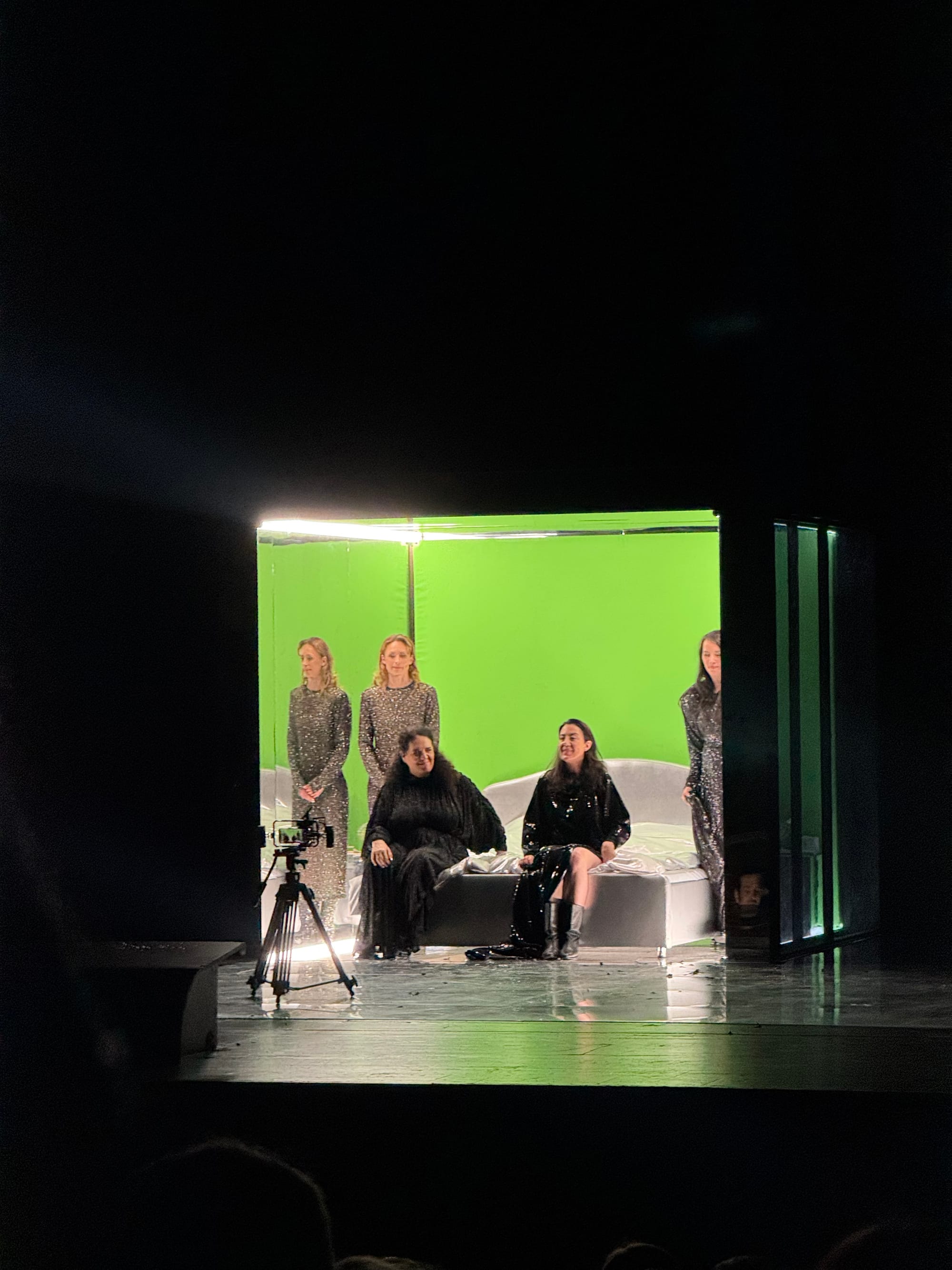

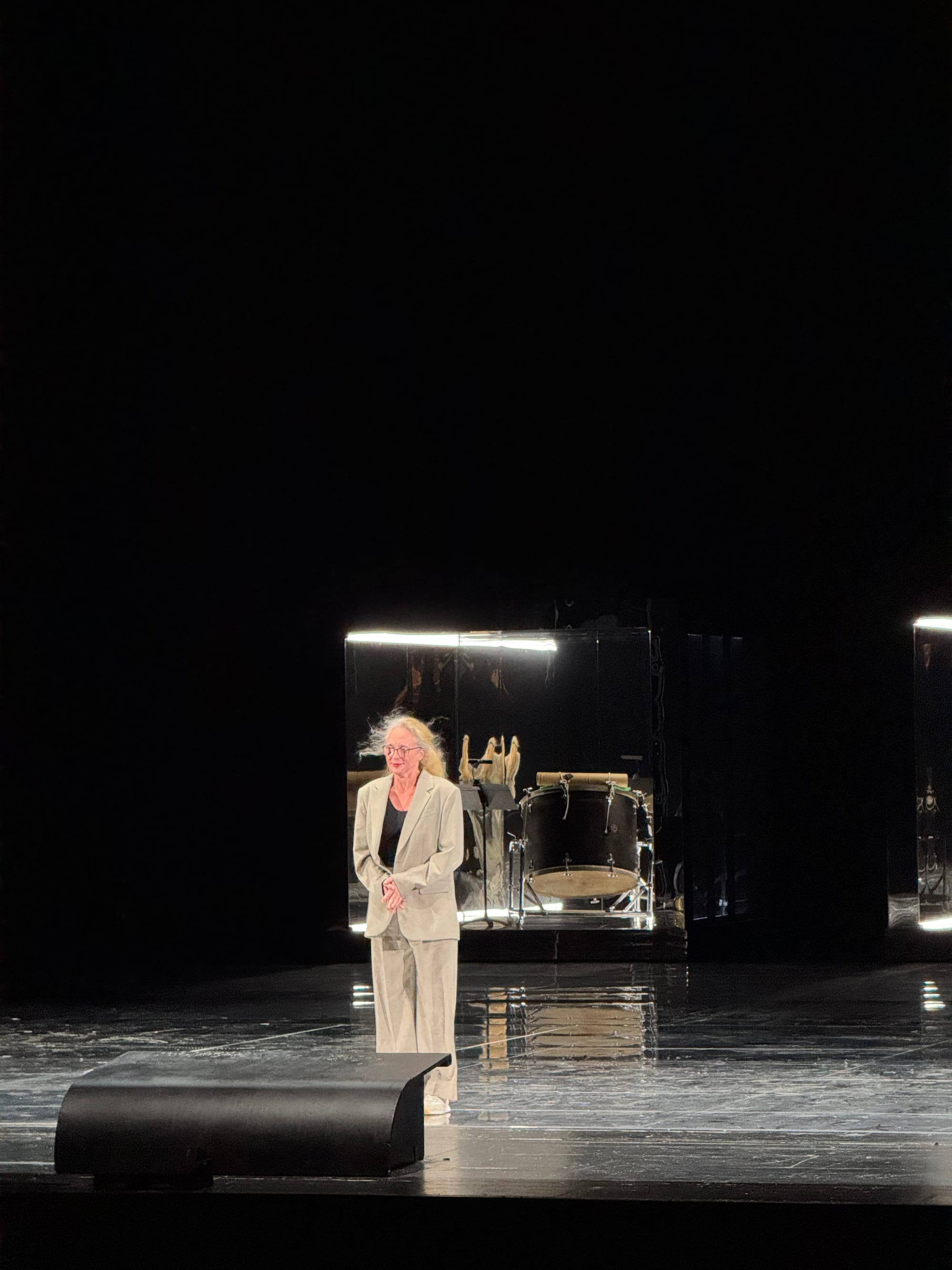
Curtain call for the world premiere of Lash-Acts of Love at Deutsche Oper Berlin. From left to right: the protagonist performers Anna Prohaska, Noa Frenkel, Sarah Maria Sun, Katja Kolm; the full cast including the camerawoman and musicians of synthesizer, e-guitar musicians, and percussion; composer Rebecca Saunders


